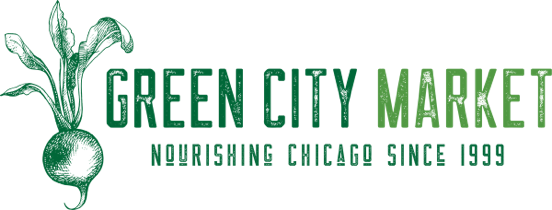Posted Jul 27, 2022

Chicago Farmers Market Collective to aid in distribution of $375,000 in Senior Farmers Market Nutrition Program benefits at Chicago farmers markets
Members of the Chicago Farmers Market Collective, a volunteer-led group of farmers market directors, managers and staff will aid in distributing half of the 15,000 Senior Farmers Market Nutrition Program (SFMNP) benefits allocated to Chicago, valued at $375,000.
Seniors who are at least 60 years and older and are at or below 185% of the federal poverty income guidelines qualify to receive a booklet valued at $25 to spend with participating farmers now through October 31. To apply and receive SFMNP benefits, seniors can visit any of the participating farmers markets below, beginning August 1.
South Side Locations
- 61st Street Farmers Market | 6100 S. Blackstone Avenue
- Bronzeville City Market | 4700 S. King Drive
- Gary Comer Youth Center | 7200 S. Ingleside Avenue
- Hyde Park Farmers Market | Hyde Park Bank parking lot, S. Lake Park Avenue
- Plant Chicago Farmers Market | Davis Square Park, 45th and Marshfield Avenue
- Pullman City Market | 11100 S. Cottage Grove Avenue
- South Shore Farmers Market | 4930 S. Cottage Grove Avenue
West Side Locations
- Austin Town Hall City Market | 5610 W. Lake Street
- Garfield Park Neighborhood Market | The Hatchery Plaza, 135 N. Kedzie Avenue
- Logan Square Farmers Market | 3107 W. Logan Boulevard
- Pilsen Community Market | 1800 S. Blue Island Avenue
- West Humboldt Park Farmers Market | 3601 W. Chicago Avenue
North Side Location
- Glenwood Sunday Market | 6960 N. Glenwood Avenue
Central Locations
- Daley Plaza City Market | 50 W. Washington Street
- Green City Market Lincoln Park | 1817 N. Clark Street
- Green City Market West Loop | 115 S. Sangamon Street
- Lincoln Park Farmers Market | 724 W. Armitage Avenue
Seniors spend coupons directly with participating farmers. Farmers who are not yet enrolled to accept SFMNP benefits can apply to do so through August 31.
Market managers have shared that additional volunteers will be needed to successfully roll out the program. Interested community members should check out individual markets websites and social media for more information on how to get involved.
“We are pleased to be able to assist the Illinois Department of Human Services in getting these important resources to Chicago’s seniors. Senior Farmers Market coupons support our seniors, by providing access to fresh produce, and benefit participating local farmers who grow and sell the produce. This resource complements our Link Match program, which matches Link purchases up to $25 per transaction,” said Connie Spreen, executive director of Experimental Station, the nonprofit that operates Woodlawn’s 61st Street Farmers Market.
"Farmers markets are food access hubs,” said Mandy Moody, executive director of Green City Market. “At Green City, we believe everyone deserves the right to locally-grown, nutrient-dense food and programs like the SFMNP and our GCM For All SNAP-benefits triple matching program help to make the real cost of food more accessible. We’re proud to work with other members of the Chicago Farmers Market Collective to ensure seniors have access to nutritious, local food.”
“GSM is committed to ensuring equitable access to locally grown, nutrient dense food for all. Helping to distribute SFMNP vouchers this season will help us serve the seniors in our Rogers Park neighborhood, home to one of the fastest growing senior populations in the City of Chicago. It is also a wonderful addition to our Market For All program which provides day-of triple dollar grant incentives for SNAP shoppers that alleviates hunger and provides additional revenue streams for our vendors,” said Sheree Moratto, sustainability director of Rogers Park Business Alliance which runs the Glenwood Sunday Market in Rogers Park.
“The purpose of the Senior Farmers Market Nutrition Program is two-fold,” said Stephanie Bess, Illinois WIC Director with the Illinois Department of Human Services. ”We want to encourage low-income seniors to eat more fruits, vegetables, cut herbs, and honey, and we want to help farmers increase their sales of their locally-grown products.”